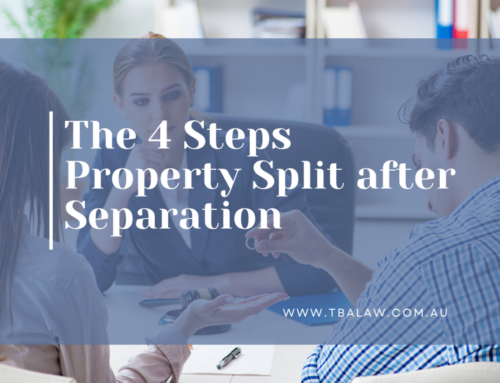How to Work with a Lawyer to Get the Best Financial Outcome After Divorce
by Lajita Allan-Agnew
The path to the the best financial outcome after divorce is different for each couple. The first piece of advice is to see your lawyer soon after you have decided to end the relationship. There is an adage that speaks, “in the heated state of mind, the emotions dictate the action”. If you are tired, angry or grieving, the decisions you make regarding your property are not necessarily the best ones for you.

Following on, your lawyer is no substitute for a therapist and it is not advisable to have your lawyer emotionally involved when acting on your behalf. Apart from the substantially larger cost of lawyers compared to mental health professionals, using your lawyer to talk through your emotional issues is the equivalent of getting your mail man doing your open-heart surgery. A therapist can assist you with mediation and family therapy for child related issues. Whilst your lawyer should have a good ‘bed side manner’, you want your lawyer to be objective and focused on getting the best outcome for you.
The next step is getting the ‘right’ lawyer because it takes just one of the four people (the two lawyers or two clients) to behave poorly and it translates to more time spent on the file and legal fees. Lawyers that have good working relationships can resolve issues efficiently, without stand-over tactics, and this translates to concluding your matter in an efficient and dignified manner.
If your matter involves a great deal of conflict and it has resulted in adversarial and antagonistic proceedings, it would be of benefit for both parties to attend a mediation. Your mediator has special training in conflict management and dispute resolution. Often, they are lawyers who can give you the benefit of their court room experience and how your matter would play out at a trial. Mediators can help you to come to an agreement on property settlements and parenting arrangements. That being said, there are some circumstances where mediation is inappropriate (such as when there is family violence and if one party’s safety is at risk) and when there is insufficient financial disclosure.
At TBA law we have a policy that if you have spent $2,000 in legal fees and you are not progressing towards a settlement, then it is time to accept that it is time to litigate the proceedings. More often than not, going to Court gives the party a sense of gravity and they can become motivated to resolve the matter in a timely manner.
Finally, it’s essential to maintain realistic expectations. To that end, if neither of you can afford to refinance the mortgage into just one name, you will need to come to terms with the fact that the matrimonial home will have to be sold. Sometimes one party is so emotionally motivated that they want to force the sale of the home. The courts will not force the sale of an asset if both parties are well compensated and the property settlement is fair and equitable.
For the best outcome, everyone needs to make peace with the life lost and move forward with what’s fair for you both with professionals that come in at the right stage of post separation and who will work for you with integrity, dignity and respect.





Leave A Comment